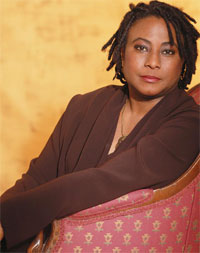
By Adam Bernstein
Washington Post Staff Writer
Friday, February 2, 2007; B07
Whitney Balliett, 80, a jazz reporter who spent more than four decades writing thousands of graceful and definitive stories for the New Yorker magazine and helped create one of the finest jazz programs on television, died Feb. 1 at his home in Manhattan, N.Y. He had liver cancer.
Jazz critic and poet Philip Larkin described Mr. Balliett as "a writer who brings jazz journalism to the verge of poetry." Dan Morgenstern, director of the Institute of Jazz Studies at Rutgers University, called him "the greatest prose stylist to ever apply his writing skills to jazz."
Mr. Balliett began writing a regular jazz column for the New Yorker in 1957. To convey the essence of music and musicians, he avoided technical terms. He considered himself an "impressionist" when he wrote about musicians because music itself is fleeting, so "transparent and bodiless." Jazz in particular, he wrote, had "odd non-notes and strange tones and timbres."
In his observations, he created portraits of entertainers in action. As an amateur drummer, he had a particular appreciation for skilled drummers.
Writing of one of his idols, the drummer Sidney "Big Sid" Catlett, he said, "One was transfixed by the easy motion of his arms, the pulse-like rigidity of his body, and the soaring of his huge hands, which reduced the drumsticks to pencils."
One of Mr. Balliett's most-anthologized pieces was his 1962 profile of clarinetist Pee Wee Russell, titled "Even His Feet Look Sad."
As for Russell's music, Mr. Balliett wrote: "No jazz musician has ever played with the same daring and nakedness and intuition. His solos didn't always arrive at their original destination. He took wild improvisational chances and when he found himself above the abyss, he simply turned in another direction, invariably hitting firm ground.
"His singular tone was never at rest. . . . Above all, he sounded cranky and querulous, but that was camouflage, for he was the most plaintive and lyrical of players."
Whitney Lyon Balliett, the son of a businessman, was born April 17, 1926, in Manhattan. While attending the private Phillips Exeter Academy in New Hampshire, he began what he called his "erratic noncareer as a drummer" after hearing a jam session on a Sunday afternoon at Jimmy Ryan's club on New York's West Side.
"The famous old New Orleans drummer Zutty Singleton was hypnotic," he later wrote of the experience for the Atlantic Monthly. "He moved his head to the rhythm in peculiar ducking motions, shot his hands at his cymbals as if he were shooting his cuffs, hit stunning rim shots, and made fearsome, inscrutable faces, his eyelids flickering like heat lightning."
After graduating from Cornell University in 1951, he wrote about jazz for the Saturday Review while working as a proofreader for the New Yorker. William Shawn, an admirer of jazz pianist Fats Waller, gave the young staff writer a jazz column in 1957.
The same year, he and jazz critic Nat Hentoff helped create the CBS-TV program "The Sound of Jazz," an offshoot of the series "The Seven Lively Arts."
The jazz show, hosted by New York Herald Tribune columnist John Crosby, brought to millions of homes such eclectic performers as Billie Holiday, Count Basie, Gerry Mulligan and Thelonious Monk. The program also twinned unlikely pairings of musicians, such as Russell and Jimmy Giuffre, clarinetists of two very different generations and styles.
Eric Larrabee wrote in Harper's magazine that "The Sound of Jazz" was the "best thing that ever happened to television." Columbia Records produced an album of the show's performers, and a video of the program was released in the mid-1980s.
Jazz critic John S. Wilson, writing in the New York Times in 1985, said that "putting Monk on national television at a time when, to the extent the general public knew of him at all, he was apt to be considered weird and possibly menacing, was a courageous and positive act."
Mr. Balliett contributed short articles for the New Yorker's Talk of the Town section as well as book, film and theater reviews. He also wrote poetry. He left the magazine staff in 1998.
Collections of his New Yorker writings were published frequently over the years. His books included "American Singers" and "American Musicians." One massive volume, subtitled "a Journal of Jazz," came out in 2000.
Reviewers noted that Mr. Balliett's taste was more traditional than avant-garde, and he tended to overlook more contemporary players, but he liked to approach all music with a degree of curiosity. He also had a reputation for writing sympathetically about his subjects, often letting them speak for paragraphs at a time to convey their rhythm and personality.
"You have to look at it from the musicians' point of view," he told the Times of London in 1993. "Often they don't get paid more than the union minimum or they've been on the road. I once traveled with Duke Ellington's orchestra, for about five days, and I couldn't believe it. Jesus! You don't know where you are, you have no sense of time or place, you can't sleep right. How these guys do it for so long, I don't know."
His marriage to Elizabeth King Balliett ended in divorce.
Survivors include his wife of 41 years, landscape painter Nancy Kraemer Balliett of Manhattan; three children from his first marriage, Julie Rose of Accord, N.Y., Blue Balliett of Chicago and Will Balliett of Manhattan; two sons from his second marriage, Whitney L. Balliett Jr. of Natick, Mass., and Jamie Balliett of Erie, Colo.; a brother; a half-sister; and seven grandchildren.




